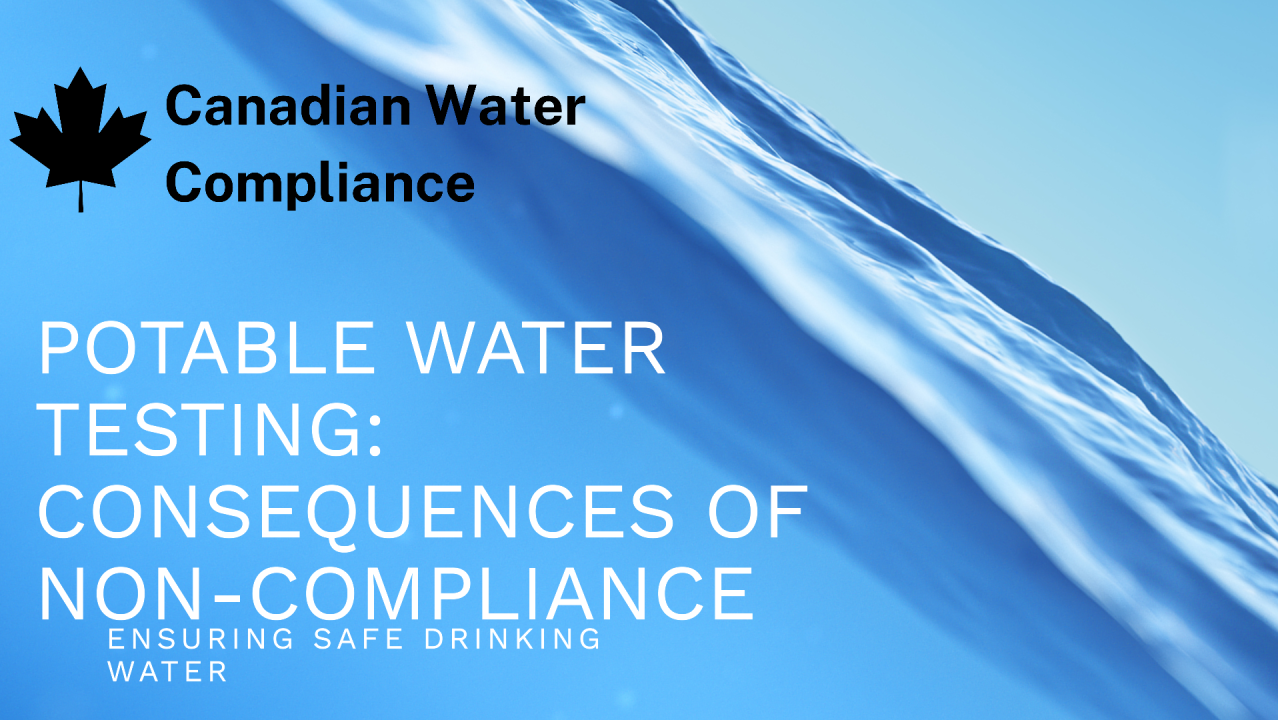
Written By: Canadian Water Compliance | On
In Ontario, ensuring the safety and quality of potable water in commercial and residential properties is not just a matter of public health—it's a legal obligation. Failure to comply with water testing regulations can lead to severe penalties, significant fines, and even criminal charges. For businesses and companies, neglecting regular potable water testing exposes them to legal risks that could jeopardize their operations and reputation. The Safe Drinking Water Act, 2002 (SDWA) is the primary legislation governing water quality in Ontario. Under the SDWA, owners and operators of drinking water systems must ensure that their water meets the standards set out by the Ministry of the Environment, Conservation and Parks (MECP). This includes regular testing for contaminants like E. coli, lead, and other hazardous substances.
The regulations are clear: businesses must conduct routine water sampling and submit the results to the appropriate authorities. Failure to do so can result in significant fines and legal actions. For businesses that fail to comply with the SDWA, the penalties are steep. The MECP has the authority to impose fines of up to $20,000 for a first offense and up to $50,000 for subsequent offenses. In cases of gross negligence, these fines can increase exponentially, potentially reaching $100,000 per day of non-compliance. Additionally, directors and officers of the company may be held personally liable, facing fines up to $4 million and imprisonment for up to five years if found guilty of knowingly disregarding water safety requirements.
For larger municipal systems, the Ontario Regulation 170/03 under the SDWA mandates specific testing requirements. These include daily testing for chlorine residual, weekly microbiological sampling, and quarterly testing for various chemical parameters. Smaller systems, such as those in some businesses or properties, may have different testing frequencies but are still required to maintain safe drinking water. Failure to comply with these regulations can result in severe penalties. Under the SDWA, individuals can face fines of up to $50,000 per day for each day the offense occurs or continues. Corporations may be fined up to $500,000 per day.
Beyond the SDWA, the Ontario Building Code and local bylaws also impose strict requirements for water testing. These regulations ensure that all new and existing buildings have safe drinking water systems. Failure to comply with these requirements can result in additional penalties, including orders to correct deficiencies, further fines, and possible closure of the property until compliance is achieved. Municipalities have the power to enforce these bylaws, leading to further complications for non-compliant businesses.
It's important to note that the Occupational Health and Safety Act also plays a role in ensuring safe drinking water in workplaces. Employers are required to provide potable water for drinking, personal washing, and food preparation that meets the standards set out in the Guidelines for Canadian Drinking Water Quality. Failure to comply with these requirements can result in additional penalties under occupational health and safety legislation. Municipalities may also have their own bylaws regarding water testing and quality. For example, some cities require businesses to conduct additional testing or maintain specific records. Violations of these local bylaws can result in municipal fines or other penalties, which are separate from provincial regulations.
In conclusion, businesses and companies in Ontario must take their water testing responsibilities seriously. Regular testing is not just a legal requirement but also crucial for public health and safety. The potential for hefty fines, imprisonment, and reputational damage makes compliance with water testing regulations a critical aspect of business operations in the province.